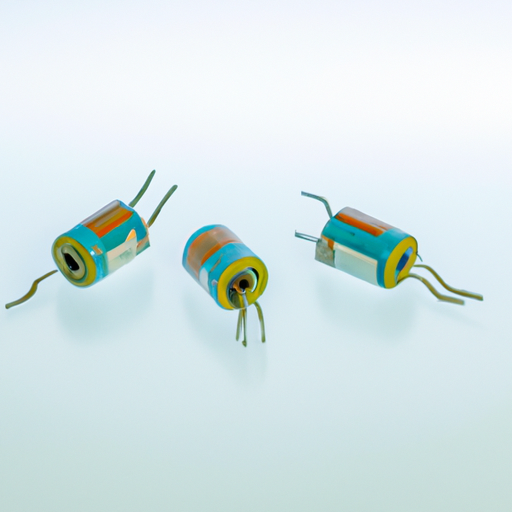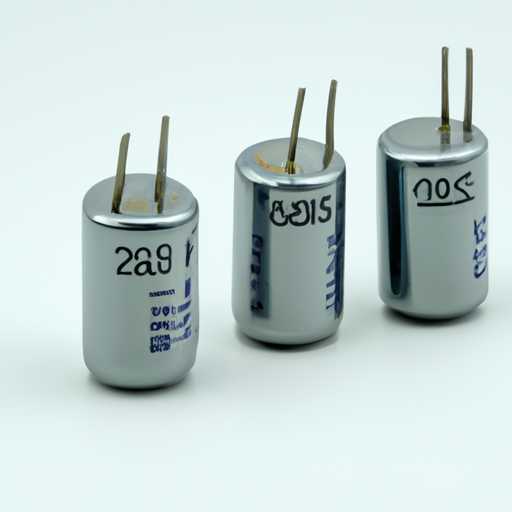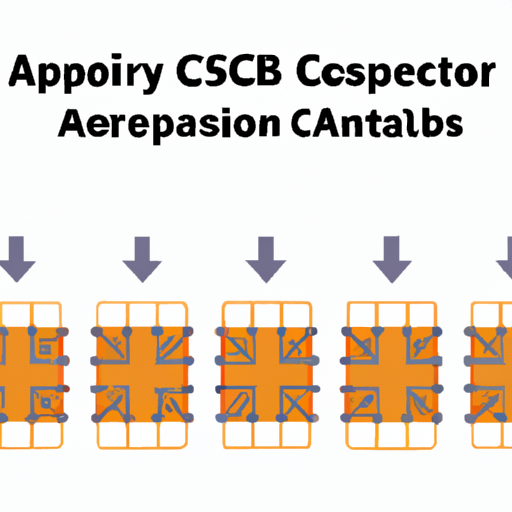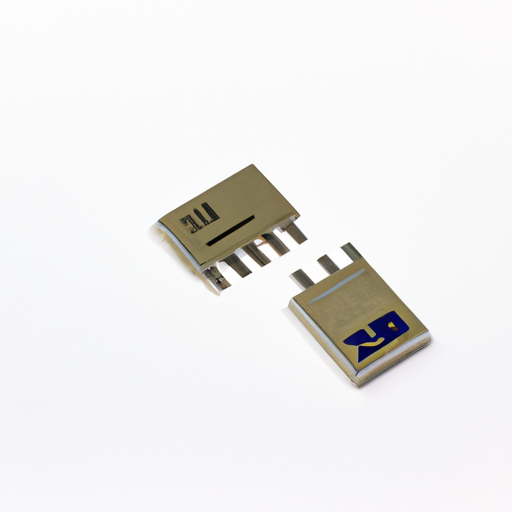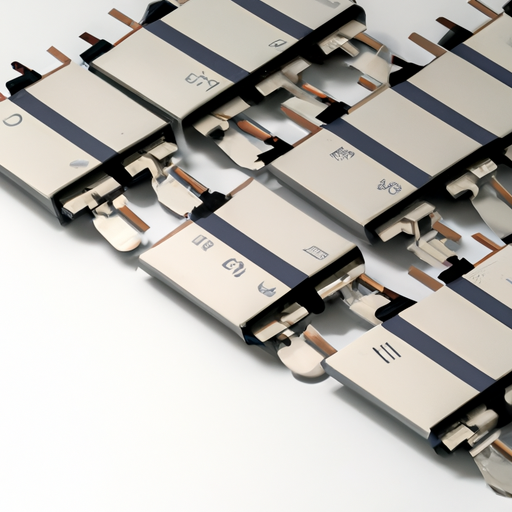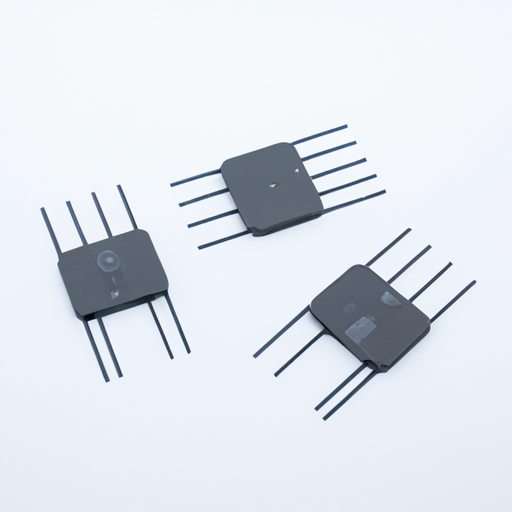What are the advantages of motor capacitor products?
What are the Advantages of Motor Capacitor Products?
I. Introduction
Motor capacitors are essential components in various electrical systems, playing a crucial role in the operation of electric motors. These devices store and release electrical energy, helping to improve the performance and efficiency of motors in a wide range of applications. This article aims to explore the advantages of motor capacitor products, highlighting their significance in enhancing motor performance, energy savings, extended motor life, versatility, reliability, and cost-effectiveness.
II. Understanding Motor Capacitors
A. Types of Motor Capacitors
Motor capacitors come in several types, each designed for specific functions within electric motors:
1. **Start Capacitors**: These capacitors provide a boost of energy to help start the motor. They are typically used in single-phase induction motors, where they create a phase shift to generate the necessary torque for starting.
2. **Run Capacitors**: Unlike start capacitors, run capacitors remain in the circuit while the motor is running. They help improve the motor's efficiency and performance by providing a continuous phase shift.
3. **Dual Capacitors**: These capacitors combine the functions of both start and run capacitors in a single unit, making them versatile for various applications.
B. Basic Functioning of Motor Capacitors
Motor capacitors work by storing electrical energy and releasing it when needed. When a motor starts, the start capacitor provides an initial surge of energy, allowing the motor to overcome inertia. Once the motor reaches a certain speed, the run capacitor takes over, ensuring smooth and efficient operation.
C. Applications of Motor Capacitors in Various Industries
Motor capacitors are widely used across different industries, including manufacturing, HVAC, refrigeration, and residential applications. Their ability to enhance motor performance makes them indispensable in equipment such as pumps, compressors, and home appliances.
III. Advantages of Motor Capacitor Products
A. Enhanced Motor Performance
1. **Improved Starting Torque**: One of the primary advantages of motor capacitors is their ability to provide a significant boost in starting torque. This is particularly important for heavy-duty motors that need extra power to initiate movement.
2. **Increased Efficiency**: By optimizing the motor's performance, capacitors help reduce energy losses during operation. This increased efficiency translates to better overall performance and lower energy consumption.
3. **Smoother Operation**: Motor capacitors contribute to smoother operation by minimizing vibrations and fluctuations in power supply. This results in quieter and more stable motor performance.
B. Energy Savings
1. **Reduction in Energy Consumption**: With improved efficiency, motors equipped with capacitors consume less energy. This reduction in energy consumption not only benefits the environment but also leads to significant cost savings for businesses and homeowners.
2. **Lower Operational Costs**: The energy savings achieved through the use of motor capacitors can lead to lower operational costs over time. This is particularly advantageous for industries that rely heavily on electric motors for their operations.
C. Extended Motor Life
1. **Reduced Wear and Tear**: By providing the necessary starting torque and maintaining efficient operation, motor capacitors help reduce the wear and tear on motor components. This can lead to a longer lifespan for the motor.
2. **Prevention of Overheating**: Capacitors help regulate the motor's temperature by ensuring it operates within optimal parameters. This prevention of overheating is crucial for maintaining the integrity of the motor and avoiding costly repairs.
D. Versatility and Adaptability
1. **Compatibility with Various Motor Types**: Motor capacitors are designed to be compatible with a wide range of motor types, including single-phase and three-phase motors. This versatility makes them suitable for various applications across different industries.
2. **Customization Options for Specific Applications**: Many manufacturers offer customizable motor capacitors tailored to specific needs. This adaptability allows businesses to select the right capacitor for their unique requirements, ensuring optimal performance.
E. Reliability and Durability
1. **High-Quality Materials and Construction**: Motor capacitors are typically made from high-quality materials that ensure durability and reliability. This construction helps them withstand the rigors of industrial and commercial environments.
2. **Resistance to Environmental Factors**: Many motor capacitors are designed to resist environmental factors such as moisture, heat, and vibration. This resistance enhances their longevity and performance in challenging conditions.
F. Cost-Effectiveness
1. **Long-Term Savings on Maintenance and Repairs**: The use of motor capacitors can lead to long-term savings by reducing the frequency of maintenance and repairs. A well-functioning motor is less likely to require costly interventions.
2. **Affordable Initial Investment**: While there may be an upfront cost associated with purchasing motor capacitors, their benefits often outweigh the initial investment. The potential for energy savings and extended motor life makes them a cost-effective choice.
IV. Applications of Motor Capacitors
A. Industrial Applications
1. **Manufacturing Equipment**: In manufacturing settings, motor capacitors are used in various machinery, including conveyor belts, lathes, and milling machines. Their ability to enhance motor performance is critical for maintaining productivity.
2. **HVAC Systems**: Motor capacitors play a vital role in HVAC systems, helping to power compressors and fans. Their efficiency contributes to the overall performance of heating and cooling systems.
B. Commercial Applications
1. **Refrigeration Units**: In commercial refrigeration, motor capacitors are essential for the operation of compressors and fans. They help maintain optimal temperatures and improve energy efficiency.
2. **Pumps and Compressors**: Motor capacitors are commonly used in pumps and compressors across various industries, ensuring reliable operation and energy savings.
C. Residential Applications
1. **Home Appliances**: Many household appliances, such as washing machines, air conditioners, and refrigerators, utilize motor capacitors to enhance performance and efficiency.
2. **Electric Fans and Motors**: Motor capacitors are also found in electric fans and other small motors, contributing to their smooth operation and energy efficiency.
V. Selecting the Right Motor Capacitor
A. Factors to Consider
1. **Motor Specifications**: When selecting a motor capacitor, it is essential to consider the motor's specifications, including voltage, capacitance, and type. Matching these parameters ensures optimal performance.
2. **Capacitor Ratings**: Capacitor ratings, such as voltage and capacitance, should align with the motor's requirements. Using the correct ratings is crucial for preventing damage and ensuring efficient operation.
B. Importance of Professional Guidance
Given the technical nature of motor capacitors, seeking professional guidance can be beneficial. Experts can help identify the right capacitor for specific applications, ensuring compatibility and performance.
C. Common Mistakes to Avoid
Common mistakes when selecting motor capacitors include choosing the wrong type, ignoring voltage ratings, and underestimating the importance of capacitance. Avoiding these pitfalls can lead to better performance and longevity.
VI. Conclusion
Motor capacitors are invaluable components in modern electrical systems, offering numerous advantages that enhance motor performance, energy efficiency, and overall reliability. Their ability to improve starting torque, reduce energy consumption, and extend motor life makes them essential in various applications across industries. As technology continues to evolve, understanding the role of motor capacitors will be crucial for optimizing electrical systems and ensuring sustainable operations. For those interested in exploring motor capacitor products further, a wealth of resources and professional guidance is available to help navigate this essential aspect of electrical engineering.
VII. References
A. Suggested readings and resources for further information on motor capacitors include industry publications, technical manuals, and online resources from reputable manufacturers.
B. Industry standards and guidelines related to motor capacitors can be found through organizations such as the Institute of Electrical and Electronics Engineers (IEEE) and the National Electrical Manufacturers Association (NEMA).

